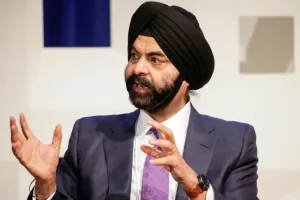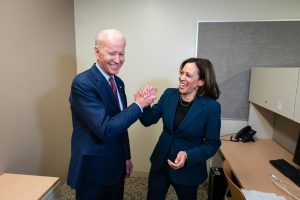Ajay Banga nominated to the Top Slot of the WB
The Indian diaspora is gleefully congratulating itself for the nomination by the President of the United States of America of Ajay Banga once the top executive of MasterCard, a digital or cashless plastic payment mechanism, to lead the World Bank . It is being repeated ad nauseam much to the delight of Indians that Ajay Banga is a homegrown Indian product who was schooled in India and in 2007 became a US citizen. By share dint of hard work he has joined dozens of Indians in plush corporate suites, travels in private jets in the US and has taken the Indian diaspora in the United States to dazzling heights.
Climate Change Sells
In Western capitols touting diversity ,financial inclusion and climate change is politically the name of the game and a rallying point for development economists of all styles and shades.The incumbent President of the World Bank David Malpass came under scathing criticism when he declined to take a position on whether he abided by the scientific proposition that burning fossil fuel leads to global warming, highlighting a doubt in the minds of environmental lobbies whether the WB was vigorously pursuing deadlines to desist funding of fossil fuels.Even multilateral organisations need image building in an instantly connected digital world which knows no boundaries.
 Credit AlJazeera
Credit AlJazeera
Privatising Water a Natural Resource
The nomination of an individual who for the West has had a direct exposure to emerging markets and unlocked access to digital technology and economy for around 500 million Indians on the face of it seems a wise choice . He is also seen to be a development economist who has the distinct perspective and hands on knowledge of the challenges confronting the developing world and understanding of ways of unlocking opportunities for growth.Confusion persists however , as his track record is more on sales and marketing and duping ordinary Indians by selling a free natural resource , water, while leading a global corporation . Yet the US administration is susceptible to what they see on the surface and ably aided by Kamala Harris the Vice President of the United States who may have assured that such an ethnic nomination would somehow galvanise and mobilise private funds to assist developing countries grappling with climate change and its economic fallout in the form of flooding , coastal degradation , acidification , desertification and damage to agriculture .
 Credit CNN
Credit CNN
Lack of Innovation in Public Sector
It helps politically that climate change is a much bandied phrase and that the World bank would be in a better position to deliver on its agenda to reduce poverty and increase prosperity through a sharp focus on combating of climate change and environmental resiliency.The nominee lacks experience in the public sector but no one seems to be listening to detractors of his appointment and the developing world which is a stakeholder being the beneficiary of the World Bank’s agenda.The water salesmanship credentials of the nominee to the top slot of the WB may become a cause of concern for developing countries . India and Bangladesh are encountering the impact of climate change in the form of coastal degradation, floods, monsoon and rain deluge, cyclones and excessive glacier melting. The resource of water is plentiful in the region. Tap water in India and Bangladesh should be pure enough to drink. The proverbial silver lining on the dark horizon is that the nominee may initiate projects to utilise the free resource of water, available in abundance , to enhance crop yield and stave off famines. At the World Bank’s prodding the public sector can be geared to become innovative in the sphere of health and education .The nominee of the World Bank is rightfully expected to be concerned that instead of digital banking miring small farmers in debt digitalisation of banking be restructured towards poverty alleviation .Such an innovative approach will enable peasants to accumulate disposable incomes which can be reallocated towards participation in inclusive education and availing health facilities to improve quality of life and productivity.

Praiseworthy information ℹ️ Amazing write up